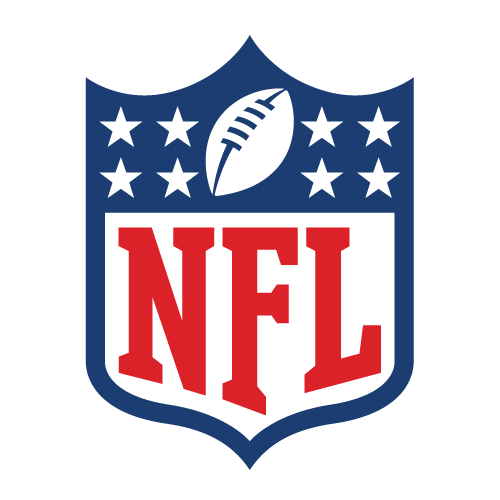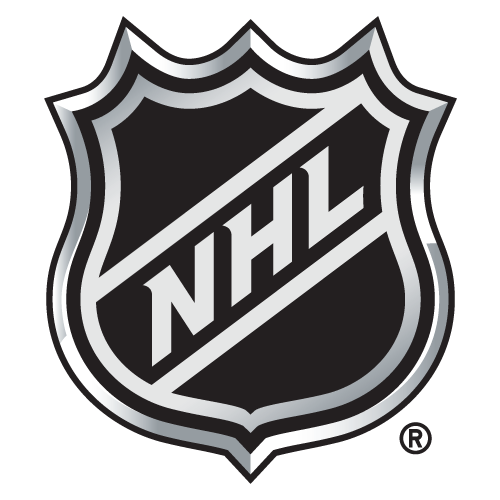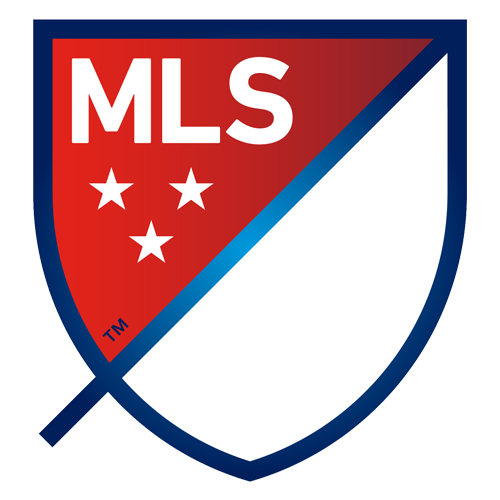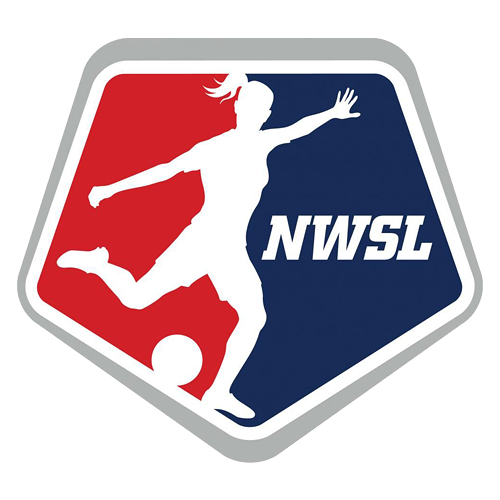You can call Seattle a hockey town now. The NHL's Board of Governors approved the city's expansion bid on Tuesday, awarding the Emerald City the league's 32nd franchise.
Which will be the next North American league to test the expansion waters? What cities might be part of that expansion? We asked our experts.
Browse by sport:
NFL | NBA | MLB | NHL | WNBA | MLS | NWSL
 NFL
NFL
Where will be next: London (but not the way you think)
Although Jacksonville Jaguars owner Shad Khan is no longer bidding to buy Wembley Stadium, there is still ample evidence of the NFL's growing connection with London. A long-delayed NFL-influenced stadium will open at Tottenham in time for next season, for example. But absent the reintroduction of supersonic transatlantic flights, huge logistical obstacles remain for a permanent franchise relocation or expansion.
A London-based NFL team probably would have a lopsided schedule featuring weeks at a time at a North American practice site, and its travel would put it at a serious competitive disadvantage. That's why many observers think the NFL's likeliest play is a "virtual" team: eight (or so) regular-season games in London -- perhaps split between Wembley and the new Tottenham stadium -- that would give U.K. fans and corporate sponsors a full dose of American football while avoiding logistical imbalances.
Where should be next: Mexico City
If the NFL wants a traditionally based international team, Mexico City is more viable than London. It wouldn't add a trip any longer than teams on either U.S. coast already face. The time zone links up. And unknown to many, the history of American football runs much deeper in Mexico than in Europe.
The relationship hit a logistical bump in November, when a game scheduled for Estadio Azeteca was moved to Los Angeles because of poor field conditions. And the chances of immediate financial success, not to be underestimated, might be better in London.
But part of the calculus must be about giving the franchise a chance to succeed beyond corporate sponsorships. The financial position of a losing team, even in a rich area, is unstable in the long term. From a competitive standpoint, Mexico City is a much better fit.
-- Kevin Seifert
 NBA
NBA
Where will be next: Nowhere
Sure, it's no fun, but the NBA has no concrete plans for expansion right now, commissioner Adam Silver reiterated in May. "I'm very focused on creating a competitive 30-team league," Silver said. As the league grapples with competitive balance issues, there are several markets (Memphis and Charlotte most notably) relying on tens of millions in annual support in revenue sharing to remain solvent. Until the NBA's weakest links are shored up, relocation is far more likely than expansion.
However, in recent years, Sacramento, Milwaukee and Minnesota (renovation) got arena deals that locked them into place. Unsure ownership situations in Memphis and New Orleans also appeared to stabilize in the past year. Right now, even relocation seems unlikely in the short term. Silver agrees that every business needs to focus on growth, and someday the league will likely expand, but that day is not on the horizon.
Where should be next: Mexico City
Enamored with the size of this untapped and basketball-interested market, the NBA has been expanding its business there the past several years. The league has staged multiple regular-season games, recently opened an academy to develop Latin American teens into possible NBA players to drive more interest and has plans to operate a G League team there in the near future.
Silver hinted at his affinity for Mexico City at the NBA Finals, when he had this to say about expansion: "There are lots of terrific markets out there in the United States and some in countries attached to the United States who also have wonderful cities that could potentially house NBA teams." This might come as a shock to those in Seattle, who naturally see that market as an NBA priority. But that just isn't the case. The deal to renovate KeyArena for a potential NHL expansion team was much less favorable to the NBA than the plan to construct a new arena in the city's SoDo district. Now, with an NHL team in, it's even less desirable because it would limit an NBA team's revenue streams. Same goes for Las Vegas. Silver said the league sees its annual summer league as its presence in that city.
-- Brian Windhorst
 MLB
MLB
Where will be next: Montreal
When baseball looks to add two more teams, the collective desire to right the wrong done to Montreal will be too strong to ignore.
There is still a robust fan base in place, as evidenced by the large crowds former Expos have attracted in Cooperstown for Hall of Fame ceremonies. It's an existing brand, with Expos caps kept in circulation by cheap-lager-swilling hipsters with ironic beards all over North America. A stadium plan will have to come together, although I've seen one breathtaking design for a venue at the intersection of Notre-Dame and Peel.
There are obstacles that weren't there even a year ago. The current mayor in Montreal isn't as keen on the Expos' return as the old one was, but that can change with the next election. Also, the sudden attendance traumas in Toronto are a concern. Still, Montreal, as a city, is a marvel, and its dense layout is perfect for a centrally located venue that can develop a base of hyper-local fans. At least some preliminary work was done to create a potential ownership group ready to keep public expenditure at a minimum, so this could come together quickly if MLB goes shopping for a new market and finds the best fit is an old one.
Where should be next: San Antonio
If current population trends continue, Texas could have more than 40 million people living in it by 2040. Already, four of the top 31 most populous metropolitan areas are in the Lone Star State. In other words, two big league teams are not enough.
San Antonio, with its rustic downtown and River Walk districts, along with a couple decent plots of land in the central district that could accommodate a new park, would be a natural fit. Adding a team in bilingual San Antonio would enhance MLB's relationship with its Latin audience and help grow the game south of the border. The San Antonio Spurs have always enjoyed hardy fan support, even in those long ago days when they weren't an NBA powerhouse, and with the city growing, there will be plenty of support for them to have company in the big-time sports scene.
All this said, if MLB targets Texas for an expansion franchise (and Manfred did not mention it in his most recent expansion comments), San Antonio will have to go toe-to-toe with Austin, which has a lot of merit in its own right, and it could come down to the strength of the ownership groups that emerge.
-- Bradford Doolittle
 NHL
NHL
Where will be next: Houston
With Seattle locked in as team No. 32, the next logical stop is Houston, likely as a relocation landing spot. There's already interest from a potential owner in Tilman Fertitta, who purchased the Houston Rockets for a reported $2.2 billion.
Fertitta, who has expressed a desire to venture into the NHL, met with commissioner Gary Bettman last fall to trade notes. Houston already has a hockey-amenable arena that sits 17,000-plus in the Toyota Center. As the league tries to grow its imprint in the U.S., Houston's diversity, as well as its sheer size (top-10 market), are incredibly attractive.
There's groundwork for hockey fandom, too, as the city supported a WHA team in the 1970s and found relative success with the AHL Aeros for nearly 20 years before the team left in 2013. Fold in a natural rivalry with the Dallas Stars, invest locally in growing the game on the youth level, and this makes a lot of sense.
Where should be next: Quebec City
Ever since the Nordiques left in 1995, Quebec City has been hounding the NHL to get back on its radar. After being passed over (first by Vegas, then by Seattle), Quebec City's NHL application is technically deferred.
It probably feels like the kid who applies for a flashy internship but never hears back. The city and the province shelled out $370 million for the NHL-ready Videotron Centre in 2015. Its 18,259 seats would rank 18th in capacity, and on most nights, it sits empty. Why is the NHL hesitating?
As Boston Bruins owner Jeremy Jacobs put it bluntly in May: "They're challenged. Look at the income base and the population base, and there probably isn't a smaller market, so they're really going to need to distinguish themselves in some other way."
Quebecers have heard a variety of excuses. Bettman has cited the fluctuation of the Canadian dollar. Size is a consideration (it's the 87th-largest city in North America). But how can you quantify hunger to support a franchise?
-- Emily Kaplan
 WNBA
WNBA
Where will be next: Golden State/Bay Area (maybe)
Launched with eight teams in 1997, the WNBA expanded each of the next three years to reach 16 quickly -- too quickly, in retrospect. Since 2002, the league has seen six franchises fold (Portland, Miami, Cleveland, Charlotte, Houston and Sacramento), three move (Utah to San Antonio and then Las Vegas, Detroit to Tulsa and then Dallas, Orlando to Connecticut) and two cities get expansion teams (Chicago in 2006 and Atlanta in 2008).
For nine seasons now, the league has been at 12 teams. One of them, original WNBA franchise New York, is currently for sale. Is there any reason to assume there will be expansion in the near future? Possibly, yes, because of the interest NBA superpower Golden State has shown in having a WNBA team. The Bay Area is seen as having potential for a fan base, and Warriors president Rick Welts was a key NBA figure who helped start the WNBA in the 1990s.
Where should be next: Golden State/Bay Area
Golden State seems a decent bet, once the downtown San Francisco arena opens. The popularity of Tennessee's women's basketball program has at times prompted mention of Nashville as an expansion possibility. Plus, some cities that lost WNBA teams might merit do-overs. Portland had a WNBA franchise for just three seasons, not long enough for the team to establish itself. The surge in success and popularity of the Oregon State and Oregon women's programs in recent years means Portland makes more sense now.
The same could be said for Charlotte; the Sting lasted 10 seasons before folding in 2006. But that was long before South Carolina -- 90 miles to the south of Charlotte -- became the top-drawing women's hoops program in the country under former Sting guard Dawn Staley. Maybe even four-time champ Houston -- which, like Sacramento, saw its WNBA demise directly linked to the global financial crisis of the late 2000s -- could get a second chance.
-- Mechelle Voepel
 MLS
MLS
Where will be next: Austin
MLS is looking to add two more teams to reach a total of 28, and Austin FC is on track to be the next expansion team.
In the alternate universe that is MLS, this can still be considered a weird one. Originally, the Columbus Crew had their sights set on relocating to Austin, Texas, but a new ownership group led by Cleveland Browns owner Jimmy Haslam looks to have saved the Crew from moving.
The problem is for MLS is that Anthony Precourt of Precourt Sports Ventures still owns the Columbus Crew and wants to be in Austin. The solution, albeit not official, is that all signs point toward Precourt still getting his Austin dream move and Austin FC starting from scratch in 2021. So basically, an expansion team, just not with an expansion owner. Clear as mud?
Where should be next: Sacramento
This is where it gets interesting. Austin getting a team on a silver platter is making the expansion race a lot tougher for Sacramento, Detroit, St. Louis and Phoenix.
Sacramento has been well positioned for a new MLS team for a while. What has been lacking in MLS' eyes is a big-money investor. However, there now appear to be a several options in the mix. Coupling a new wealthy investor and the city's planned soccer stadium site in the downtown area, you have the main ingredients for a new MLS team.
Detroit has the financial backers, which include the Ford Family, so logically they see Ford Field as a stadium site. Yet MLS commissioner Don Garber seems unconvinced, instead stressing the need for a soccer-specific stadium.
St. Louis is also in with a shot after a new ownership group emerged with plans to privately finance a new stadium.
Phoenix is a contender as well, and has an ownership group in place ready to spend 250 million private dollars to construct a stadium designed to counter Phoenix's oppressive summer heat.
In the end, Sacramento still seems the logical choice at present, assuming the right investor is found.
-- Arch Bell
 NWSL
NWSL
Where will be next: Los Angeles
California has remained a noticeable omission from the NWSL map since the league's debut season in 2013. That appears likely to change, with Los Angeles the anticipated landing spot. The league suffered its first major structural hiccup this past winter with the dissolution of the Boston franchise. That left the NWSL with nine teams, and given Boston's status as one of a few independently owned clubs, it reinforced a trend toward affiliation with men's teams, mostly MLS.
But La Liga giant Barcelona and MLS club LAFC are most often mentioned in connection with NWSL expansion in California. Barca has recently become a significant presence in the European women's game, spending relatively freely to acquire star players and contend in the UEFA Women's Champions League, and it has stated its interest in NWSL involvement.
No expansion is likely for 2019.
Where should be next: Vancouver
The per capita talent that comes out of the Denver area, including U.S. women's national team members Lindsey Horan and Mallory Pugh and Canadian-American Janine Beckie, makes that an intriguing option if an entity such as the MLS Colorado Rapids were ever interested.
But given that the NWSL is partially a venture of the Canadian soccer federation, as well as the natural geography near successful franchises in Seattle and Portland if the league expands its West Coast footprint, Vancouver is a logical destination. Cavernous BC Place, which hosted the Women's World Cup Final in 2015, would lack something in ambiance, even cordoned off to around 22,000 seats, as it is for the MLS Vancouver Whitecaps. But that club's infrastructure and the Canadian presence in the league make the market compelling.
-- Graham Hays
